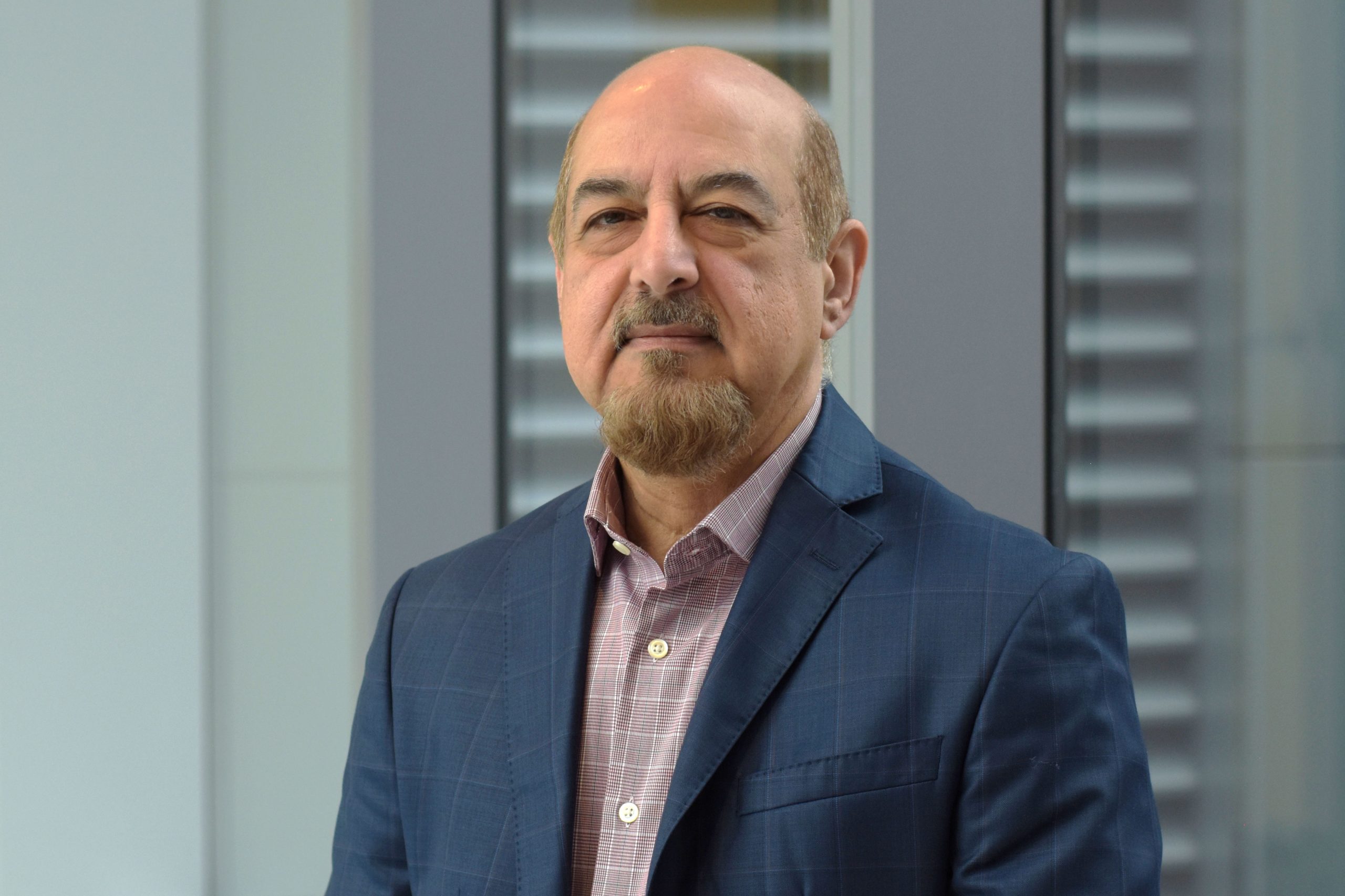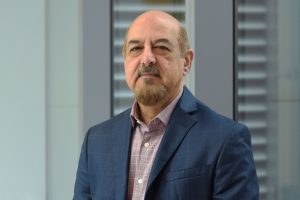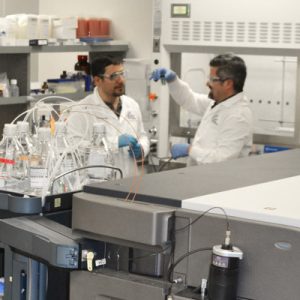Dr. Masoud Vedadi joined OICR in 2022, bringing a wealth of experience in characterizing targets for new cancer drugs.
OICR bolstered its capacity to develop new cancer therapeutics in 2022 with the addition of Dr. Masoud Vedadi, a world-renowned expert in early-stage drug discovery.
Vedadi is an Associate Professor in the University of Toronto’s Pharmacology and Toxicology Department who spent the last two decades as Principal Investigator for the Structural Genomics Consortium (SGC).
With expertise in enzymology, biochemistry and protein science, Vedadi regularly collaborated with OICR in his role with SGC and is one of the key scientists behind the groundbreaking WDR5 project. In July 2022, he officially joined OICR as Senior Scientific Advisor, bringing a wealth of experience to OICR’s expert team of Drug Discovery researchers.
OICR News recently spoke to Vedadi about his accomplished career and his aims for his new role.
Why did you get involved in drug discovery for cancer?
I have always been passionate about science, and my specific interests have largely been motivated by unmet needs in society. Cancer, of course, is such a major challenge all over the world. It causes so many people to suffer, and I want to help reduce that suffering by developing effective treatment options.
My passion to contribute has also led me in other directions based on world events. For example, during the coronavirus pandemic over the past few years, I have been contributing to projects to develop COVID-19 therapeutics and we have had successes on that front.
Tell us about your new role as Senior Scientific Advisor with OICR.
In early-stage drug discovery, we try to identify molecules that can influence the function of disease-causing proteins. In many cases, cancers are driven by a particular protein. If we can reduce the effect of the protein, we may be able to stop cancer from growing. At its core, my job is to find small molecules that modulate the function of disease-causing proteins so that they can be turned into anti-cancer drugs and give physicians a tool they can use against the disease.
What attracted you to OICR?
Working with a great team matters a lot to me, and I have always been impressed with Dr. Rima Al-Awar’s team at OICR. We collaborated extensively for several years while I was working with the SGC, and our teamwork paid off with some major advancements, including our discoveries around the WDR5 protein and other drug discovery projects. Throughout all our collaborations, the chemistry and biology teams at OICR were very knowledgeable and competent, and my positive experiences with them were part of why I chose to join OICR last year.
How will your experience working with industry benefit you in this role?
One of my first positions after completing my PhD in biochemistry was with Affinium Pharmaceuticals. I’ve also run projects in collaboration with major companies like Pfizer, Novartis, Bayer, Merck, Takeda and many others. This experience has given me an in-depth view of how to make drug discovery projects more successful from start to finish. I’ve learned about the challenges faced at each step and ways to overcome them.
What are your goals for Drug Discovery at OICR?
The time between finding a small molecule and the development of an anti-cancer drug can be quite long. But we can shorten that timeline if we can quickly find molecules to start with. The more reliable, potent, and selective molecules we have as starting points, the better chance that one will be effective in a clinical trial and be on the path to helping patients. Therefore, I want to give OICR’s Drug Discovery team access to as many proteins as possible, anytime they need them, so they can identify potential drug targets.
How are you working to achieve these goals so far?
Since starting my role in July 2022, I have been working to create three components to strengthen early-stage drug development at OICR: a platform for protein production, a platform for protein crystallization, and important screening assays. I’m excited to have brought in some highly qualified team members to help lead this work and we are making great strides. These developments will give OICR the ability to produce, screen, characterize and crystallize proteins, allowing the whole Drug Discovery team to work more efficiently and shorten the timeline for bringing successful drugs to the clinic.



